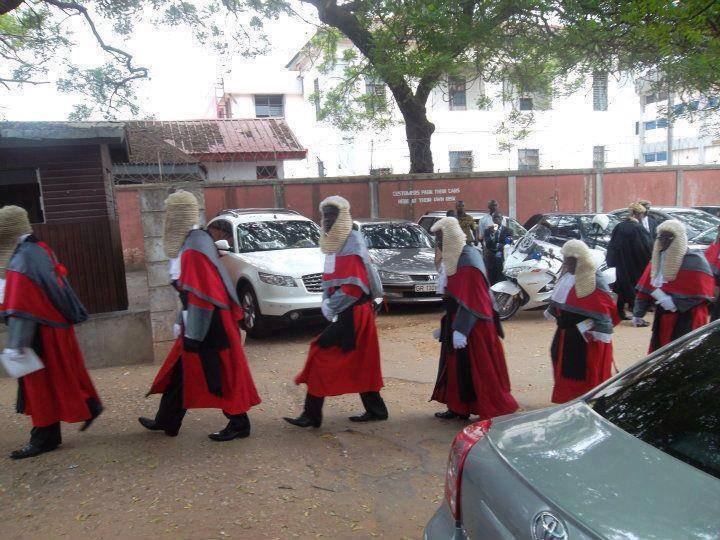President John Dramani Mahama’s nomination of seven justices to the Supreme Court of Ghana marks a significant step in shaping the future of the nation’s highest judicial body. The nominations, submitted in accordance with Article 144(2) of the 1992 Constitution, underscore the President’s constitutional prerogative and initiate a process of consultation and approval involving the Council of State and Parliament. This process reflects the checks and balances inherent in Ghana’s democratic framework, ensuring that appointments to this pivotal institution are subject to rigorous scrutiny and collective decision-making. The selection of these seven individuals carries significant weight, as the Supreme Court plays a vital role in interpreting the Constitution, safeguarding fundamental rights, and ultimately shaping the legal landscape of the country.
The seven nominees bring a diverse range of legal expertise and experience to the table. Justice Sir Dennis Dominic Adjei, Justice Gbiel Simon Suurbaareh, Justice Senyo Dzamefe, Justice Kweku Tawiah Ackaah-Boafo, Justice Philip Bright Mensah, Justice Janapare Bartels-Kodwo, and Justice Hafisata Amaleboba have each carved out distinguished careers within the Ghanaian judiciary, serving at the Court of Appeal level and demonstrating their commitment to upholding the principles of justice and fairness. Their collective experience encompasses a wide spectrum of legal disciplines, promising a well-rounded and comprehensive approach to the interpretation and application of law at the highest level. The President’s selection reflects a careful consideration of their individual qualifications and their potential to contribute to the overall effectiveness and integrity of the Supreme Court.
The nomination process, as outlined in the Constitution, involves a crucial consultative phase with the Council of State. This esteemed body, composed of eminent individuals from various walks of life, plays a critical role in advising the President on matters of national importance. Their deliberation on the suitability of the nominated justices adds another layer of scrutiny, ensuring that the appointments reflect not only legal competence but also a broader understanding of the societal and political context in which the Supreme Court operates. The Council of State’s input provides valuable perspective and helps to guarantee that the nominees possess the wisdom, integrity, and impartiality required to discharge their duties effectively.
Following the Council of State’s recommendations, the nominations proceed to Parliament for final approval. This stage involves a thorough vetting process, where members of Parliament have the opportunity to scrutinize the nominees’ qualifications, experience, and judicial philosophy. This parliamentary review ensures transparency and accountability, allowing for public input and debate on the suitability of the candidates. The parliamentary approval process underscores the democratic principles of representation and participation, giving voice to the citizenry in the selection of individuals who will ultimately shape the interpretation and application of the nation’s laws.
The President’s expressed hope for expedited action on the nominations, conveyed through his Secretary, Dr. Callistus Mahama, highlights the importance of filling these vacancies promptly. A fully constituted Supreme Court is essential for the efficient and effective administration of justice, ensuring that cases are heard and resolved without undue delay. The timely appointment of these justices will contribute to maintaining the integrity and credibility of the judicial system, upholding the rule of law, and safeguarding the rights and liberties of all Ghanaians. The urgency expressed by the President underscores the significance of these appointments in maintaining the smooth functioning of the judiciary.
Ultimately, the appointment of these seven justices to the Supreme Court will have a lasting impact on the legal landscape of Ghana. Their decisions will shape the interpretation of the Constitution, influence the development of legal precedents, and ultimately affect the lives of ordinary citizens. The rigorous nomination and approval process underscores the importance of selecting individuals who possess not only legal acumen but also a deep commitment to justice, fairness, and the principles of democracy. The future of the Supreme Court rests on the shoulders of these individuals, and their appointments represent a pivotal moment in the ongoing evolution of Ghana’s legal system.


